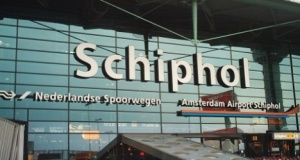Schiphol seeks to speed up immigration checks

Accenture has been selected by the Dutch ministry of internal affairs to design and deliver Automated Border Control Systems (ABCS) at Schiphol airport in Amsterdam.
The new systems will reduce the waiting time of travellers passing through one of the world’s busiest airports during peak immigration periods by more efficiently validating passenger identities and documentation.
Accenture will initially deliver 36 electronic border-crossing gates to be used at Schiphol airport during 2011.
The Automated Border Control System will use the latest in biometric technologies, including facial recognition, to validate passenger identities and passports.
Accenture is supported on this project by subcontractors Vision-Box and Capgemini. Accenture and Vision-Box have successfully implemented similar programs across Europe to facilitate border crossings of large numbers of travellers in an easy and customer-oriented way.
Speaking on the project, Ger Daly, managing director, defence & public safety, Accenture Health & Public Service, said: “With growth in traveller numbers and increased documentation and visa complexity, border crossings around the world are now busier than ever.
“Accenture and our partners have extensive experience developing and introducing robust, resilient, secure and scalable electronic border-crossing systems at international airports in the United Kingdom, Finland and Portugal, and we have already overseen a successful pilot program for Schiphol.”
Accenture will work alongside Vision-Box and Capgemini to develop and implement the ABCS solution and is responsible for the on-going training, support and maintenance of the electronic border-crossing gates.
City.Mobi
Also in Europe today, City.Mobi is celebrating the success of its new guide to Amsterdam.
City.Mobi offers the most comprehensive mobile travel guides available, with over 800 cities in 200 countries listed. Each is developed by the City.Mobi team to combine into a single global travel directory.
However, each city retains its own mobile identity via a dedicated domain. Already on offer are Brussels.Mobi, Paris.Mobi, Sanfrancisco.Mobi and Sydney.Mobi.
Amsterdam.Mobi is the latest in this illustrious line up, offering click to call functionality – which means no scribbling down telephone numbers.
Most entries are also linked to websites where users can quickly access more detailed information if needed.
Other key features include information on accommodation, restaurants, attractions, entertainment, nightlife, shopping, and transport.
City.Mobi guides include user reviews and traveller utilities such as a translation guide, currency converter, news and local weather guide.

